
Viking Names
Sookholme
Sookholme, in the Bassetlaw Wapentake of Nottinghamshire, lies in a river valley and the etymology of the name reflects its location. The first element is Old English sulh ‘a plough; a ploughland (i.e. the amount of land which can be cultivated with one plough)’ which is combined with the second element, Old Norse holmr ‘an island, an inland promontory, raised ground in marsh, a river-meadow’. Thus it is a hybrid name with the probable meaning of ‘gully island’.
Read More
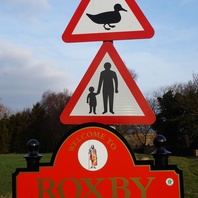
Viking Names
Roxby
Roxby, in the West Riding of Lindsey in Lincolnshire, comes from the Old Norse male name Hrókr and the Old Norse element by ‘farmstead, a village’. Roxby is a joint parish with Risby.
Read More

Viking Names
Kirkby Green
Kirkby Green, in the Langoe Wapentake of Lincolnshire, comes from the Old Norse appellative compound kirkju-by ‘a village with a church’. The affix Green come from Old English grene ‘grassy spot, a village green’
Read More
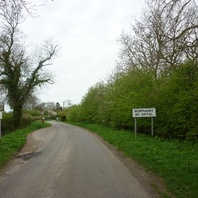
Viking Names
Normanby by Spital
Normanby by Spital, in the Aslacoe Wapentake of Lincolnshire, takes its name from the Old English ethnonym Norðman ‘Northman, Norwegian’ and the Old Norse element bý ‘a farmstead, a village’. A Domesday form of the name, Normanestouu, has as the second element Old English stow ‘a place, a place of assembly’, but this form is not supported by later recordings. The suffix Spital is for its proximity to Spittal in the Street, ‘hospital on a Roman road (Ermine Street)’. Traditionally, the place-name has been interpreted as referring to a settlement of Norwegians (in an area where most of the Scandinavian settlers were Danes). However, the exact implications of such a name are not yet fully understood and are the subject of ongoing work by Dr Jayne Carroll of the Institute for Name-Studies, University of Nottingham. There are other Normanbys in Lincolnshire, Normanby in Burton upon Stather and Normanby by Stow.
Read More
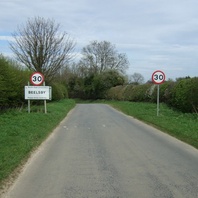
Viking Names
Beelsby
Beelsby, in the Haverstoe Wapentake of Lincolnshire, perhaps comes from the rare Old Norse male personal name Beli and the Old Norse element bý ‘a farmstead, a village’.
Read More
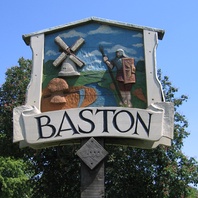
Viking Names
Baston
Baston, in the Ness Wapentake of Lincolnshire, is an Anglo-Scandinavian hybrid compound from the Old Norse male byname Bak meaning ‘back’ and the Old English element tun ‘an enclosure; a farmstead; a village; an estate’.
Read More

Viking Names
Dalby
Dalby, in the South Riding of Lindsey in Lincolnshire, comes from the Old Norse element dalr ‘a valley’ and Old Norse bý ‘a farmstead, village’. Thus the meaning of the place-name is ‘a farmstead, village of the small valley’, which is topographically appropriate.
Read More
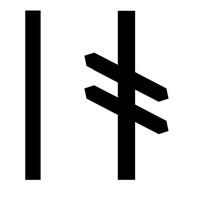
Viking Names
Bjor
Bjórr is an original byname meaning ‘beaver’. It is recorded in a Norwegian runic inscription as the name of a mane who took part in Cnut’s expedition to England and died there (c. 1015). Biur is recorded in Sweden as a byname.
Read More

Viking Names
Audhild
The Old Norse female personal name Auðhildr is a compound formed of the first element Auð-, which is obscure in origin but perhaps auðr ‘wealth’ or from the stem in auðinn ‘that befalls one’ and jóð ‘new-born baby’, combined with the second element -hildr ‘battle’. A woman by the name of Auðhildr was recorded recorded as having lived in the Orkneys in the early twelfth century. Auðhildr is believed to be the first element in the medieval field name of Odelgateland in Stainburn, West Yorkshire. It also appears in medieval Lincolnshire and Yorkshire documents. However, some forms of the name may represent the Continental Germanic female name Odil.
Read More
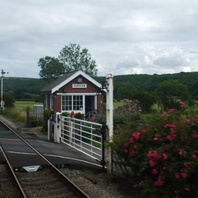
Viking Names
Howsham
Howsham, in the Yarborough Wapentake of Lincolnshire, is a simplex place-name from the dative plural of Old English hūs or Old Norse hús, both elements have the meaning ‘a house; also sometimes used of a building for special purposes’, so húsum ‘at the houses’. The weakly stressed -um was subsequently interpreted as -ham. This is a common formation in Denmark, so the place-name is likely Danish in origin.
Read More

Viking Names
Ingus
Ingus is possibly an Anglo-Scandinavian formation because it is not attested in Scandinavia and perhaps only survives in the place-name Ings Beck, North Yorkshire. In the twelfth century the place-name was recorded as Ingusbec. The name is possibly a short form of the Old Norse female name Ingiríðr.
